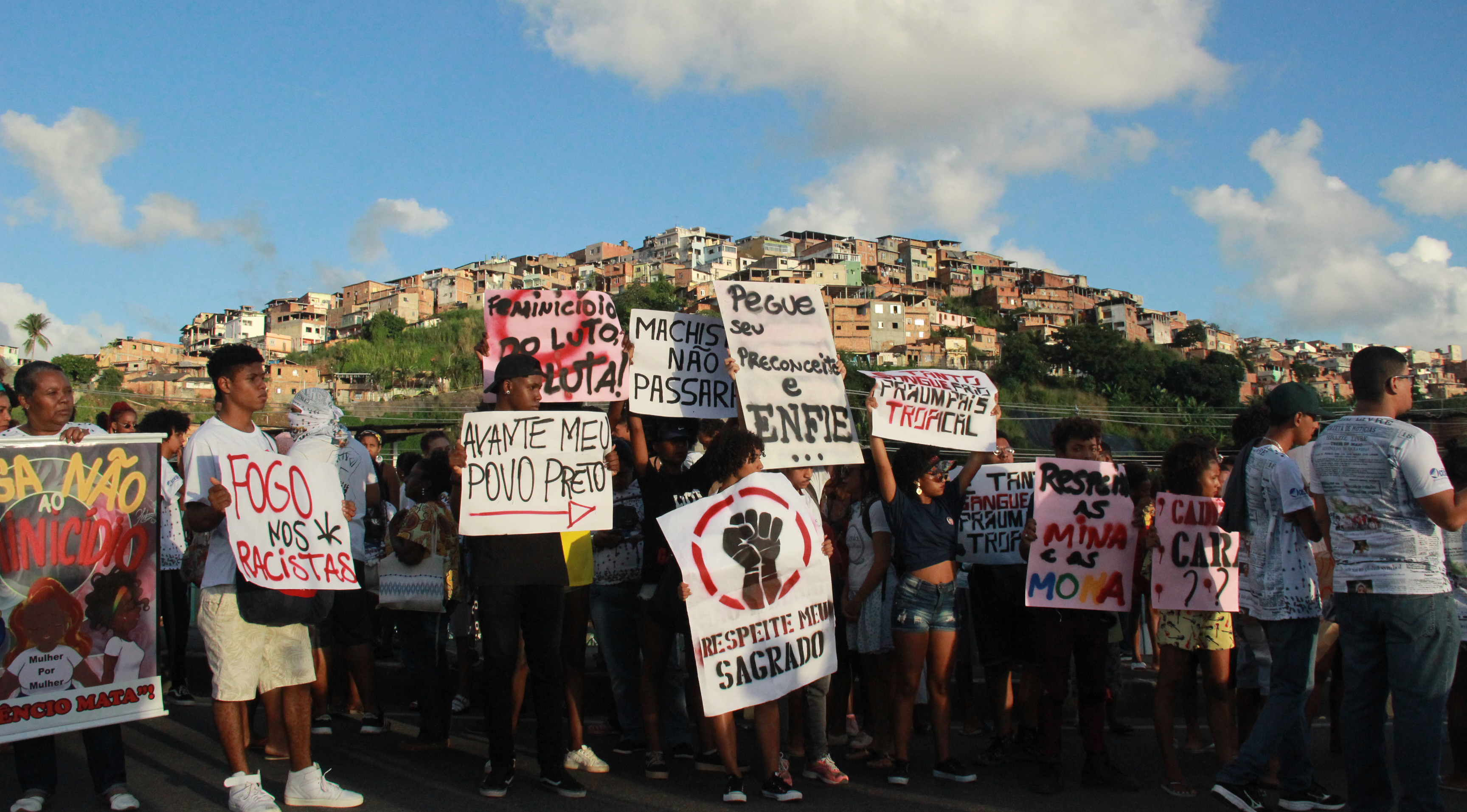After the violent death of George Floyd last year, hundreds of thousands took to the streets, and Black Lives Matter movements worldwide gained momentum. Also, in Brazil’s poor neighborhoods, such police brutality is commonplace. But resistance among the population is growing. Grassroots movements are taking up the fight against structural violence and racism.
In 2019, Brazilian security forces killed 6,357 people. The number of fatal victims of police violence increased for the sixth consecutive year. The rate of police-involved killings in Brazil is about four times higher than in the U.S, according to a UNDOC rating. President Jair Bolsonaro’s inflammatory speeches justify this excessive use of force by security forces. Most victims of police violence are black, male, and poor. More than half (55%) of them are aged between 15 and 25 years.
One of the reasons for the state-induced or at least tolerated killings of civilians is the social acceptance of violence, which is rooted in the legacy of slavery. To this day, the history of systematic discrimination and exploitation has not been addressed and casts its shadow on today’s social structures. Structural racism persists in unequal social structures. Criminal justice practices and police brutality perpetuate social exclusion mechanisms.
Instead of addressing the root causes of this violence, the Bolsonaro administration relies on “heavy-handed” policies. According to the prevailing security policy discourse, drug traffickers and criminals can only be dealt with by the most violent means possible. Consequently, cases of police violence are often not investigated. The use of lethal force is often presented as the unavoidable price of security. Acting on government’s orders, police officers wage a “war on drugs and criminals” armed with heavy weaponry, often taking the law into their own hands and, in some cases, even becoming directly involved in criminal activities. During their operations in the favelas, they frequently endanger uninvolved bystanders, mainly children, and young people. In Rio de Janeiro alone, 62 children were hit by ricochets during shootings in 2020, 26 of whom succumbed to their injuries.
Against impunity
The fatal consequences of these repressive and militarized security policies are documented by terre des hommes schweiz’s project partners in the favelas of Salvador and Recife, where grassroots organizations address the structural causes of violence with social programs for young people. They challenge the impunity of violent crimes committed by the police. The youth groups of the partner organization CIPÓ analyze the structural causes of violence and jointly develop non-violent approaches to fight stigmatization in their everyday lives.
With their persistent public protests against impunity in cases of arbitrary and unlawful assaults by the police, young people from CIPÓ have achieved partial success. The young activists were heard in the Bahia State Parliament and were able to call for an inquiry into cases of police brutality.
Where do the weapons come from?
To find out to what extent police forces that have been proven to commit serious human rights violations are equipped with Swiss weapons, terre des hommes schweiz commissioned a study, together with Terre des Hommes Germany. This in-depth analysis containing several case studies on police brutality will be published in May 2021.


